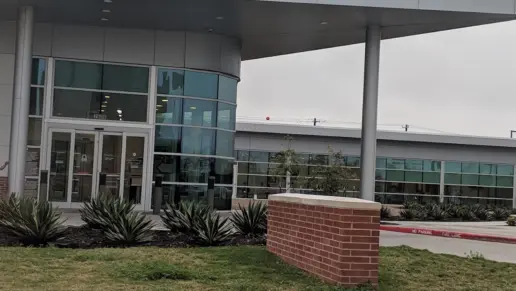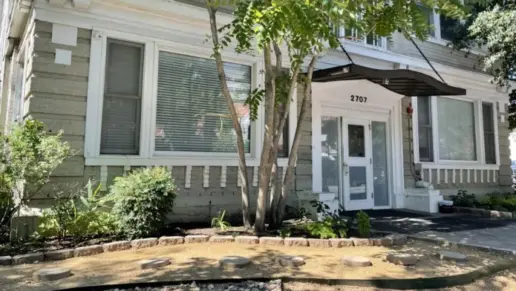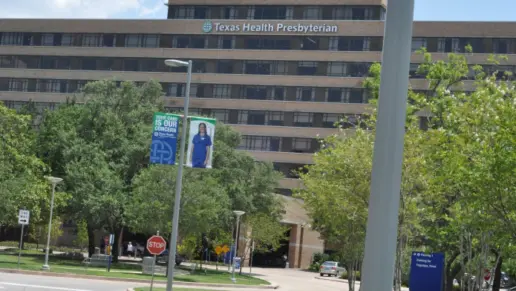About Hope Center Ministries – Wichita Falls Men’s Center
Hope Center Ministries – Wichita Falls Men’s Center in Wichita, Texas, offers faith based residential recovery programs for adult men struggling with alcohol and drug addiction. They help clients overcome substance use disorders by restoring hope, transforming lives and fostering a connection with the love of Jesus.
One great aspect of the center is that they complement daily recovery activities with extracurriculars like gym sessions, Saturday fun days such as lake trips or skydiving, weekend retreats to the mountains or beaches and a readily accessible snack shack. The program features a comprehensive, three phase structure that spans at least a year. Phase 1 lasts four weeks, Phase 2 extends for 40 weeks and Phase 3 concludes with a minimum of eight weeks.
Phase One combines Bible based activities such as Bible studies, devotion and daily reflection with traditional recovery techniques. These include 12 step meetings, individual and group sessions and recreational exercises as well as family support and visitation. Additionally, the sponsoring church offers weekend services, small group opportunities and pastoral care. In Phase Two, the program adapts to meet your core needs by adding vocational training. This is a 40 hour weekly component that integrates daily chores with real world responsibilities in a supportive environment. It helps you develop essential life skills, build positive relationships and gain valuable references for their future.
In the final phase, you’ll learn additional skills like financial management and receive more privileges, including opportunities to earn income and personal phone and vehicle use, preparing you for life after graduation. The entire program is completely modeled to help you return to a stable, responsible, addiction free and Christ like life via devotion, Bible studies and prayers. The center is committed to supporting the recovery of both residents and their families. They offer services like family support nights, foundations classes, visitation opportunities, weekly Celebrate Recovery meetings and interactive coursework.
Gallery
Other Forms of Payment
Self-pay involves paying for treatment out of your own pocket. You can use savings or credit, get a personal loan, or receive help from family and friends to fund your treatment. If you don't have insurance or your insurance plan doesn't cover a specific program, self-pay can help ensure you still get the care you need.
Addiction Treatments
Levels of Care
Treatments
The goal of treatment for alcoholism is abstinence. Those with poor social support, poor motivation, or psychiatric disorders tend to relapse within a few years of treatment. For these people, success is measured by longer periods of abstinence, reduced use of alcohol, better health, and improved social functioning. Recovery and Maintenance are usually based on 12 step programs and AA meetings.
During rehab in Texas, you'll deal with underlying issues that contribute to addiction. By addressing these challenges and learning healthy ways to cope with them, you'll develop strategies that help you live a drug-free lifestyle.
Opioid rehabs specialize in supporting those recovering from opioid addiction. They treat those suffering from addiction to illegal opioids like heroin, as well as prescription drugs like oxycodone. These centers typically combine both physical as well as mental and emotional support to help stop addiction. Physical support often includes medical detox and subsequent medical support (including medication), and mental support includes in-depth therapy to address the underlying causes of addiction.
Substance rehabs focus on helping individuals recover from substance abuse, including alcohol and drug addiction (both illegal and prescription drugs). They often include the opportunity to engage in both individual as well as group therapy.
Programs


Clinical Services
Research clearly demonstrates that recovery is far more successful and sustainable when loved ones like family members participate in rehab and substance abuse treatment. Genetic factors may be at play when it comes to drug and alcohol addiction, as well as mental health issues. Family dynamics often play a critical role in addiction triggers, and if properly educated, family members can be a strong source of support when it comes to rehabilitation.
Group therapy is any therapeutic work that happens in a group (not one-on-one). There are a number of different group therapy modalities, including support groups, experiential therapy, psycho-education, and more. Group therapy involves treatment as well as processing interaction between group members.
In individual therapy, a patient meets one-on-one with a trained psychologist or counselor. Therapy is a pivotal part of effective substance abuse treatment, as it often covers root causes of addiction, including challenges faced by the patient in their social, family, and work/school life.
Life skills trainings involve all the skills a person must have in order to function successfully in the world. These include time management, career guidance, money management, and effective communication. Truly successful addiction recovery is based on the ability to not only live substance-free, but to thrive. Life skills teaches the practical necessities of functioning in society, which sets clients up for success in life, and therefore sobriety.
Recreational therapy (aka therapeutic recreation) uses creative and fun activities to help with addiction recovery. Recreational therapists lead patients in entertaining and engaging activities like sports or games; art (drawing, painting, sculpture); drama, music, and dance; and/or community outings (field trips) to improve patients' physical, social, and emotional well-being.
Amenities
-
Private Setting
Contact Information
583 Country Rd
Wichita Falls, TX 76310


